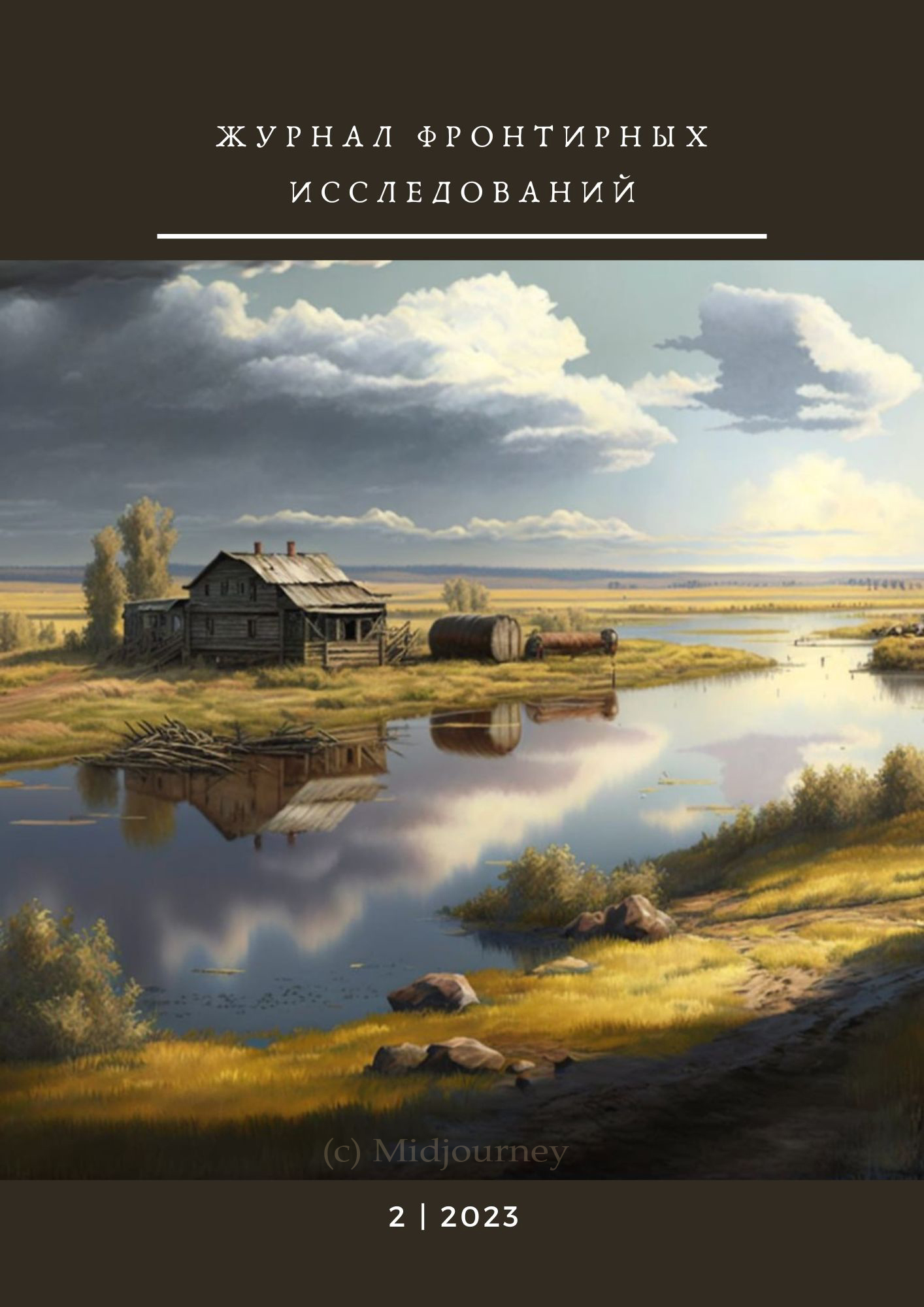Аннотация
Понятие о геополитике стало объектом исследования в ряде научных дисциплин, включая литературоведение с особым акцентом на травелог, который является наиболее многопредставительным жанром путевых заметок. Травелог, как литературный жанр, тематическая доминанта которого актуализирует аспект мобильности, представляет множество географических мест через призму геополитики. Страны, территории и регионы могут приобретать ассоциативные изменения в контексте историко-политических сдвигов.
Настоящая статья фокусируется на общих политических влияниях на сибирский хронотоп, отраженных в современных латвийских и американских путевых заметках. Она раскрывает не только субъективные восприятия места путешественниками, но также указывает на множественные политические влияния, которые создали стереотипный образ Сибири как периферии, места ссылки и принудительной власти.
После рассмотрения и анализа сибирского хронотопа в сравнительной перспективе становится очевидным, что американские путешественники склонны воспринимать этот регион, опираясь на свои общие знания об исторических процессах и установленные стереотипы, в то время как латвийские путешественники прослеживают часть своей истории в Сибири, где сотни латышей пострадали от репрессий в конце 1930-х годов под влиянием советского режима.
Литература
Abele, I. (2005). To the East from the Sun and to the North from the Earth. Diaries and travelogues. Atena. (In Latvian).
Bakhtin, M. M. (1982). The dialogic imagination: four essays. University of Texas Press.
Bendixen, A., & Hamera, J. (2009). The Cambridge companion to American travel writing. Cambridge University Press. https://doi.org/10.1017/CCOL9780521861090
Berensmeyer, I., & Ehland, C. (2012). Perspectives on Mobility. Rodopi. https://doi.org/10.1163/9789401209649
Burima, M. (2008a). The 1960s and 1970s: Transformations of the Latvian Literary Compass. In Back to Baltic Memory: Lost and Found in Literature 1940-1968 (pp. 249–260). Literatūras, folkloras un mākslas institūts.
Burima, M. (2008b). The mental topochrone of Latgale in the recent Latvian literature. In Latgale as a culture boderzone (pp. 246–253). Daugavpils University’s Academic Publishers “Saule”. (In Latvian).
Burima, M. (2008c). Version about a version. https://satori.lv/article/versija-par-versiju (In Latvian)
Burima, M. (2014). Travelogues in Latvian Literature (late 20th – early 21st century): Deconstruction and Reconstruction of Mental Borders. The Proceedings of the 1st SWS International Multidisciplinary Scientific Conference on Social Sciences and Arts SGEM 2014, 1, 283–290. https://doi.org/10.5593/sgemsocial2014/B31/S8.037
Burima, M. (2016). Orientalism, otherness, and the Soviet empire: Travelogues by Latvian writers of the Soviet period. Journal of Baltic Studies, 47(1), 65–75. https://doi.org/10.1080/01629778.2015.1103511
Cresswell, T. (2011). Mobilities I: Catching up. Progress in Human Geography, 35(4), 550–558. https://doi.org/10.1177/0309132510383348
Dima, A. (1977). Principles of comparative literary studies. Progress. (In Russian).
Downs, R. M., & Stea, D. (Eds.). (1973). Image and environment: Cognitive mapping and spatial behavior. Transaction Publishers.
Flint, C. (2022). Introduction to geopolitics. Routledge.
Frazier, I. (2011). Travels in Siberia. Picador.
Gudkova, E. F. (2007). The chronotope of Siberian in Russian classical literature of 18th-19th centuries. http://guuu7.narod.ru/HS.htm (In Russian)
Hart, J. L. (2021). Violence and Movement: Conflict, Genocide and the Darker Side of ‘Travel.’ Interlitteraria, XXVI(2), 431–447. https://doi.org/10.12697/IL.2021.26.2.8
Hulme, P., & Youngs, T. (2002). The Cambridge companion to travel writing (Vol. 10). Cambridge University Press. https://doi.org/10.1017/CCOL052178140X
Kaplan, R. D. (1997). The Ends of the Earth: A Journey at the Dawn of the Twenty-First Century. Macmillan Papermac.
Kraak, M.-J., & Ormeling, F. (2010). Cartography: Visualization of Geospatial Data. Pearson Education Limited.
Leavenworth, M. L. (2010). The second journey: Travelling in literary footsteps. Umea University.
Leitis, I., & Briedis, U. (2016). In search of Latvians in Siberia. “Lietusdārzs” Publishing House. (In Latvian).
Lisle, D. (2011). The Global Politics of Contemporary Travel Writing. Cambridge University Press.
Lotman, J. M. (1996). Semiosphere. Inside the thinking worlds. In Human-text-semiosphere-history. Languages of Russian Culture.
Melgalve, I. (2015). Writer and thought in decentralized literature. Punctum. https://www.punctummagazine.lv/2015/03/19/rakstnieks-un-doma-decentralizeta-literatura/ (In Latvian)
Moisio, S. (2017). Geopolitics/ Critical Geopolitics. In J. A. Agnew, V. Mamadouh, A. Secor, & J. Sharp, The Wiley Blackwell Companion to Political Geography (pp. 220–234). John Wiley & Sons. https://doi.org/10.1002/9781118725771.ch17
Mowat, F. (1984). The Siberians. Bantam Books.
Muktupavela, L., & Terzens, A. (2006). It happens in Latvia. ARTE Publishing House. (In Latvian).
Ozola, D. (2020). Siberian Culture and Lifestyle in the Reception of Contemporary North American and Latvian Travel Writers. The Proceedings of the 7th SWS International Scientific Conference on Arts & Humanities SGEM 2020, Volume 6, Issue 2, Section Literature & Poetry, 147–156. https://doi.org/10.5593/sws.iscah.2020.7.1/s25.18
Ponomarev, E. R. (2020). Travelogue vs travel article: The Russian version of postcolonialism. New Literary Observer, 6, 562-580. (In Russian).
Shachkova, V. A. (2008). Travelogue as a Genre of Fiction: Theoretical Issues. Vestnik of Lobachevsky University of Nizhni Novgorod, 3, 277-281. (In Russian).
Theroux, P. (2006). The Great Railway Bazaar: By Train Through Asia. First Mariner Books edition.
Trels, E. (2001–2021). E. Trels’ Dictionary. http://www.trels.lv/vardnica.html (In Latvian)
Youngs, T. (2013). The Cambridge introduction to travel writing. Cambridge University Press. https://doi.org/10.1017/CBO9780511843150

Это произведение доступно по лицензии Creative Commons «Attribution» («Атрибуция») 4.0 Всемирная.

